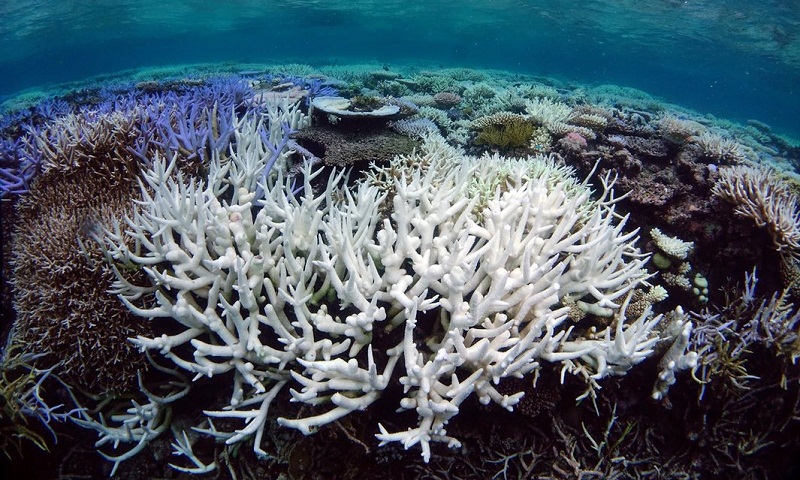Stopping global warming is only way to save Great Barrier Reef, scientists warn

Improvements to water quality or fishing controls don’t prevent underwater heatwaves damaging coral, studies of mass bleaching events reveal. The survival of the Great Barrier Reef hinges on urgent moves to cut global warming because nothing else will protect coral from the coming cycle of mass bleaching events, new research has found. The study of three mass bleaching events on Australian reefs in 1998, 2002 and 2016 found coral was damaged by underwater heatwaves regardless of any local improvements to water quality or fishing controls. The research, authored by 46 scientists and published in Nature, raises serious questions about Australia’s long-term conservation plan for its famous reef, which invests heavily in lifting water quality but is silent on climate-change action. The researchers said the findings of their paper, Global Warming and Recurrent Mass Bleaching of Corals, applied to coral reefs worldwide. Its publication comes the same day its lead author, Terry Hughes, is due to embark on an aerial survey to confirm the extent of another mass bleaching event on the Great Barrier Reef. It is the first mass bleaching to occur for a second consecutive year on the reef, which suffered its worst ever damage in 2016 when 22% of coral was killed off in a single hit. The study, which was unable to take in the effects of the latest event, warned a fourth mass bleaching event “within the next decade or two” gave the badly damaged northern section of the reef a “slim” chance of ever recovering to its former state. Hughes said the latest event, which was notable for having nothing to do with the warming effect of El Niño weather patterns, highlighted how research on mass bleaching, even when fast-tracked, was unable to keep pace with the reef’s current state.

